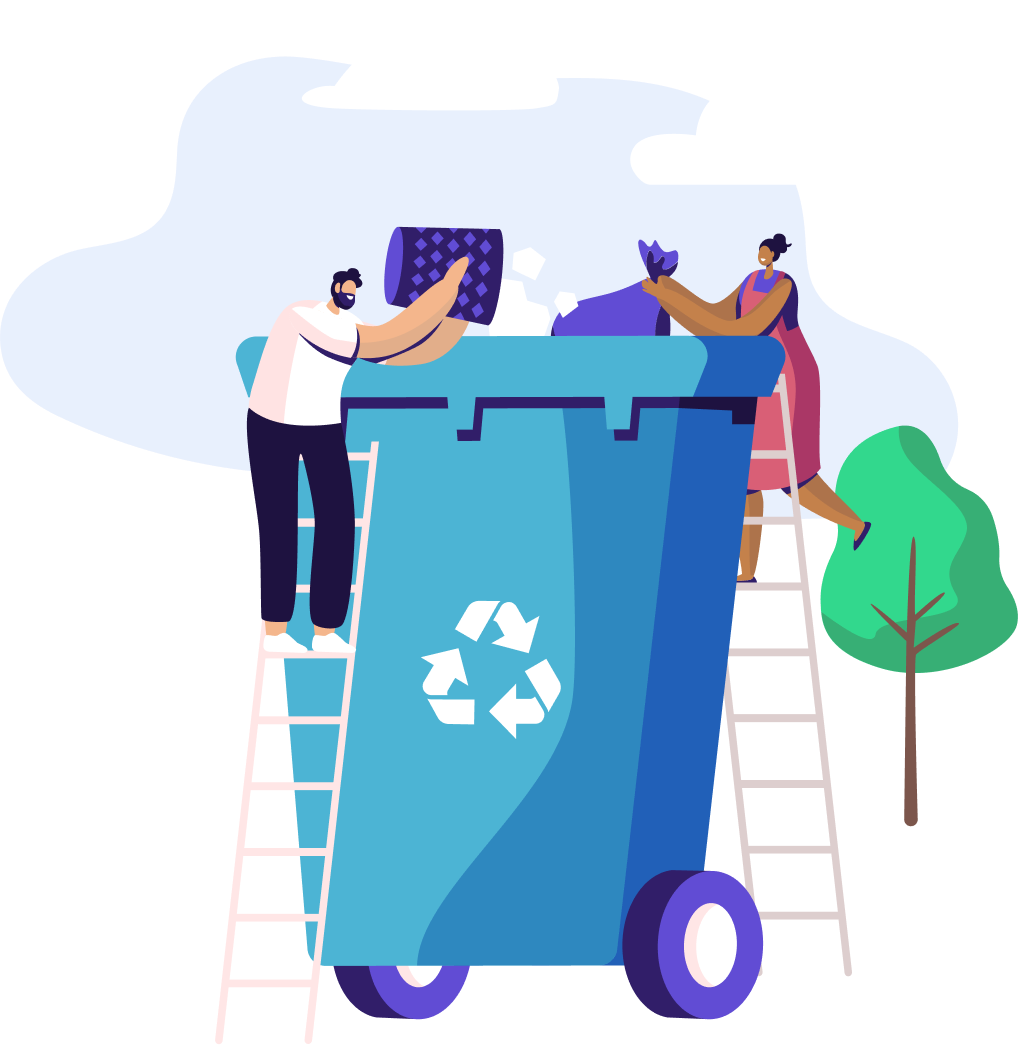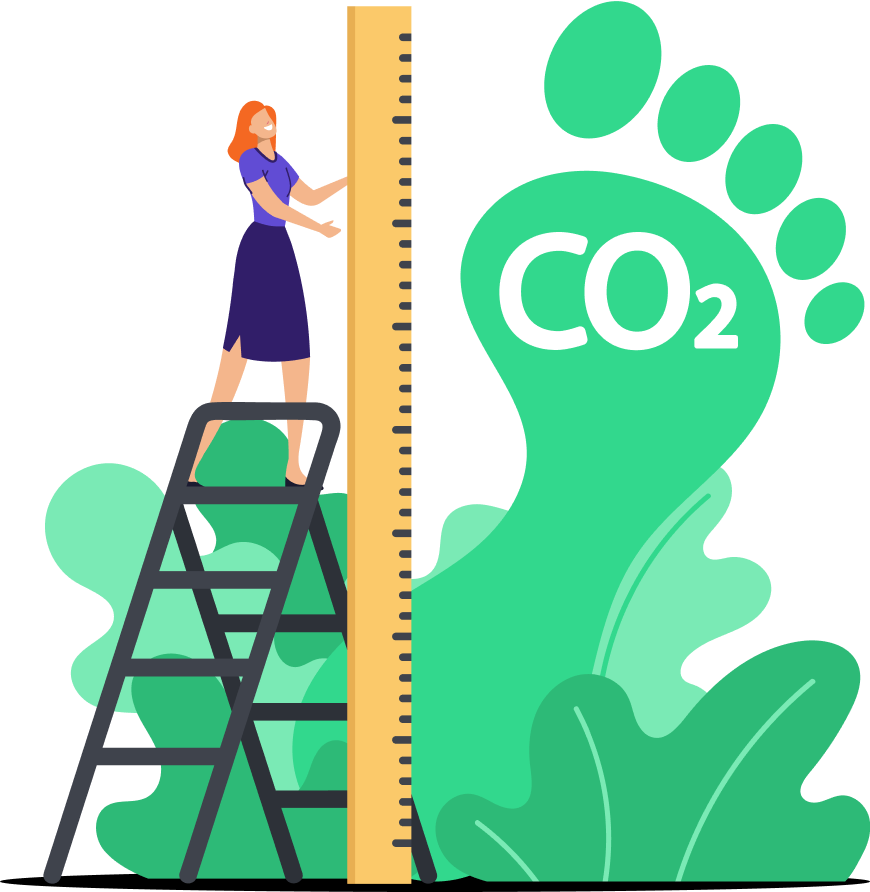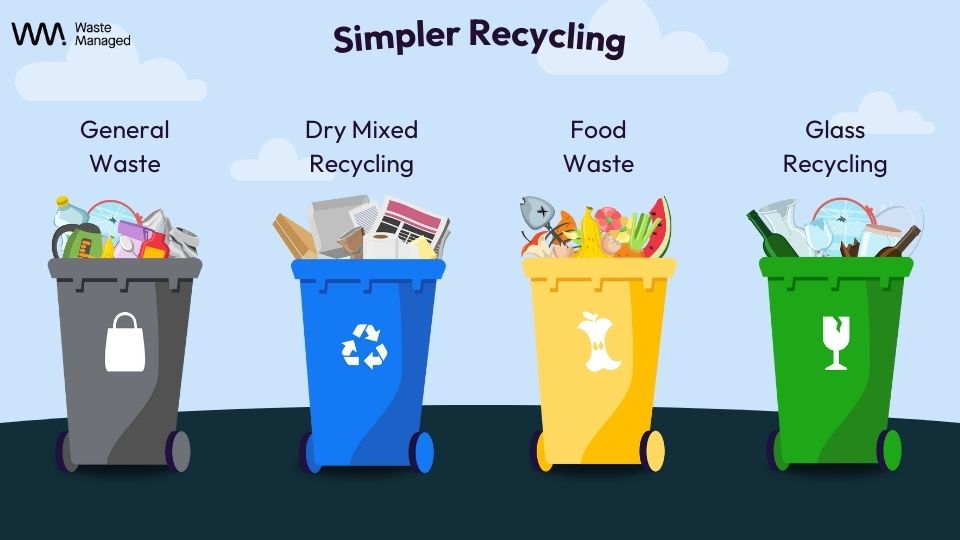Waste Managed & The Circular Economy
Climate change is one of the greatest threats of our time. The management of waste and recycling plays a vital role in reducing the carbon footprint of businesses. Although good progress has been made in decarbonising the waste industry the last 30 years, with a reduction in emissions of 70% from 1990 levels, there is still so much more to do.
We are immensely proud to play our part in positively affecting sustainable solutions to waste management. Our goal is to help our SME customers create a legacy to protect the biodiversity of our planet. Our four key stakeholders in this philosophy are our planet, our customers, our employees and our society.
This starts with our own environmental performance (for which we are fully certified with the UKAS Standard ISO 14001:2015 Environmental accreditation).

We give honest guidance to our customers about the best way for them to manage their waste with the least impact on the environment, aiming for 100% landfill avoidance.
We engage with our employees through our team of Circular Economy Champions, whose role it is to ensure that we embed our environmental ethics throughout the business from top to bottom. This engagement includes offering subsidised metro passes to travel to work, electric vehicle salary sacrifice schemes, and bike-to-work subsidies.
We look at how we can listen to the concerns of the wider society, including our work with Just One Tree where we support the planting of new trees through their reforestation projects to combat CO2 emissions and help to fight climate change which is creating danger to communities across the world.

How we put our Green Ethics into practice

We consult with and listen to customers who ask us how they can improve their sustainability so that we can provide solutions for them. This may be on the waste they are already producing where they are concerned about its end destination, or developing new solutions such as the disposal of vapes, plastics and electrical items.
However, whilst it may seem contradictory for a waste management company, our primary goal is to help minimise the amount of material that becomes waste in the first place through employee training and customer guidance released by our team. The best way of protecting the planet is simply to produce less waste. Therefore, reducing the amount of unnecessary packaging which we have become accustomed to.

We take our role in supporting sustainability really seriously, as we are in a great position to influence the actions of both our customers and our suppliers to help create a better, more sustainable world.
This includes working with our supply chain partners to not only collect more single waste streams which are more easily recyclable, but also working with them to reduce their carbon footprint both through improved route density (less fuel required) and also the use of electric vehicles where applicable. In addition, we are working hard to recover more food waste and cooking oil waste which can be easily converted into biofuel to power the trucks collecting the waste – a true circular economy initiative.

There has been a lot of focus in the past year on collection and packaging reforms. These include the Packaging Extended Producer Responsibility (EPR) for the whole of the UK, the Deposit Return Scheme (DRS) for Scotland, England, Wales and Northern Ireland, Collections Consistency for England, and separate recycling collections from businesses in Wales.
We work closely with DEFRA on consultations around the new legislation being introduced, to ensure that we fully understand the opportunities for our customers.
This not only includes targets to recycle more waste but goes to the heart of the challenge. The legislation which will be introduced starting in 2025 aims to improve our ability to become more sustainable as a nation.

There has been a lot of focus in the past year on collection and packaging reforms. These include the Packaging Extended Producer Responsibility (EPR) for the whole of the UK, the Deposit Return Scheme (DRS) for Scotland, England, Wales and Northern Ireland, Collections Consistency for England, and separate recycling collections from businesses in Wales.
We work closely with DEFRA on consultations around the new legislation being introduced, to ensure that we fully understand the opportunities for our customers.
This not only includes targets to recycle more waste but goes to the heart of the challenge. The legislation which will be introduced starting in 2025 aims to improve our ability to become more sustainable as a nation.





